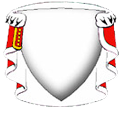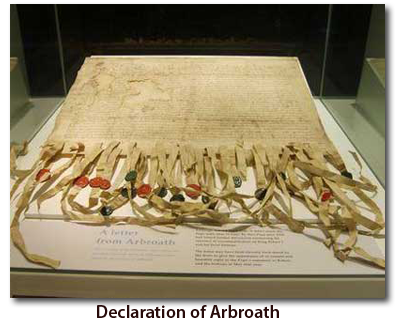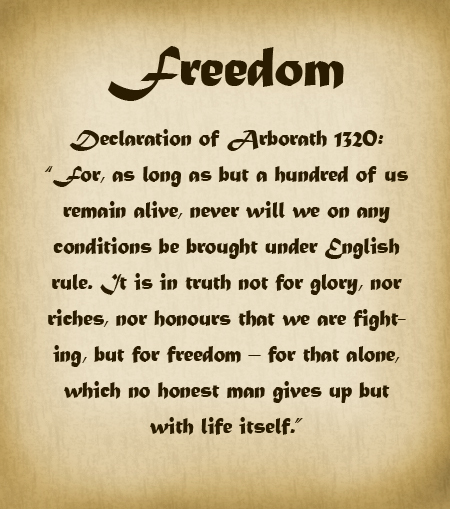 The Baronage of Scotland
The Baronage of Scotland
The Barons - Backbone of Parliament


This letter in elegant medieval Latin, written during the long wars with England, sought papal recognition for Robert the Bruce as King of Scots. It has been described as one of the masterpieces of political rhetoric of all time and included such memorable lines as: "It is in truth and not for glory, nor riches, nor honours that we are fighting, but for liberty for that alone, which no honest man gives up but with life itself."
Thirty-eight barons and eight earls attached their seals to the document.
For centuries these feudal barons formed the backbone of the Scottish Parliament and upheld the King's laws through their local courts.
In Scotland the Peers were originally an Order of Earls, an 'estait' that grew out of the 'Seven Earls of Scotland' who were the Ri or provincial kings of Ancient Alban. As such, in parliament, they sat on the 'Benches of the Throne' of the Ard-Righ-Alban, the High King of Scots. (The Crown of Scotland was therefore 'Ane Imperiall Croun'. ) Initially the earls, like the barons derived their status directly from their territories. Sir Thomas Innes of Learney in 'The Robes of the Feudal Baronage of Scotland" wrote "In 1326 there were no Lords - in either the Scottish or English sense of that word". However, in 1358 a new type of earldom was established when Sir William Douglas was created the first Earl of Douglas. This was - a personal honour without any territorial rights. This relatively cheap form of royal patronage was later extended with the introduction of 'Lords of Parliament'.
Baronies have been recognised by the Crown as land-holding titles for nearly 1000 years, but this link was broken by recent feudal reform in Scotland which has separated the dignity of barony from the ownership of land. Baronies are now treated in the same way as any other form of heritable property.
http://www.scotsbarons.org

